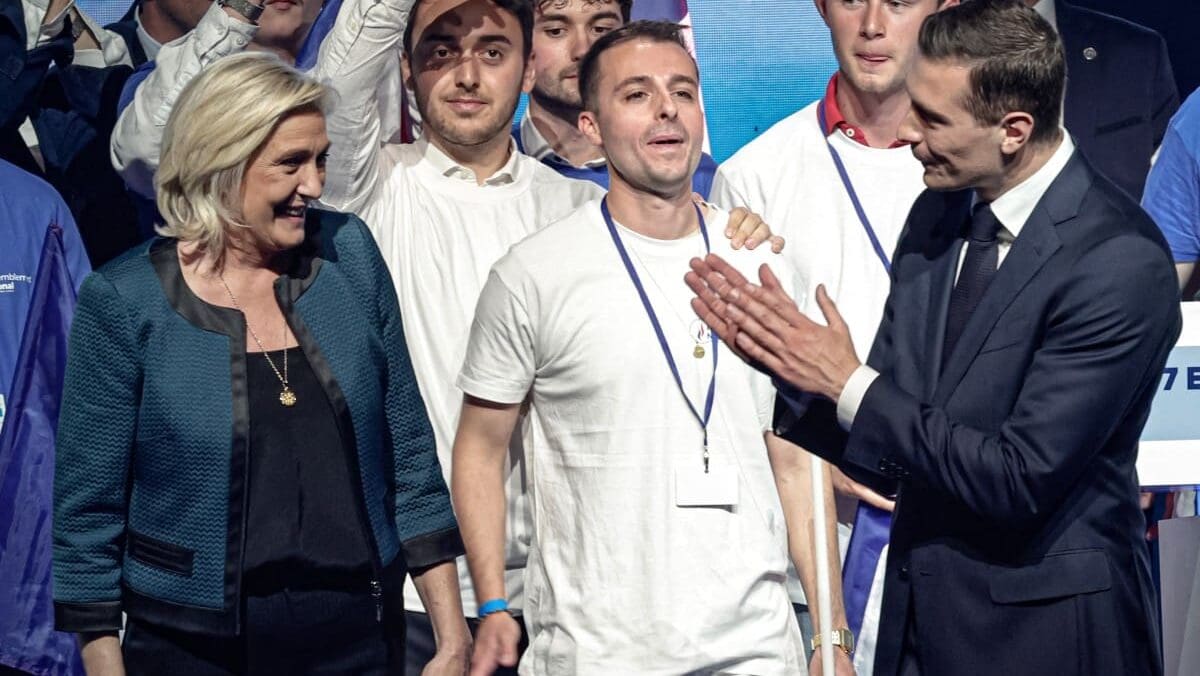
Photo: STEPHANE DE SAKUTIN / AFP
With less than three days to go until the first round of the French parliamentary elections, two polling institutes are simultaneously predicting a possible absolute majority for the Rassemblement National (RN) in the National Assembly.
Since Emmanuel Macron announced the dissolution of the Assembly on June 9th, the Rassemblement National has been given the lead with more than 30% of the vote, but there is still uncertainty over the actual number of seats that Marine Le Pen and Jordan Bardella’s party could win. However, two independent estimates consider it entirely possible that the national Right party and its allies could pass the 289 MP mark required to obtain an absolute majority.
The RN’s upward trend has been observable for several days, despite the offensive orchestrated by the media and the political class of the centre and Left to dissuade voters from placing their trust in a party presented as ‘racist,’ ‘fascist,’ economically inept or dangerous for the rights of women and minorities. “But that’s not the point,” explains pollster and essayist Jérôme Fourquet, head of the Opinion Department at polling company IFOP, renowned for the accuracy and relevance of his diagnoses.
He analyses this trend on the LCI news channel and talks of “empathy of point of view”: ‘Marine’ and ‘Jordan,’ as they are colloquially called, have succeeded in creating a close relationship with a growing number of French people who, deaf to media injunctions, find them a source of comfort and hope.
In his view, the RN vote is not surprising, but the logical outcome of changes in French society. He points to the role played by the explosion in petty crime and everyday insecurity, and by immigration, which is hitting hard at those who, in their everyday life, no longer recognise their street or small town. In the figures, “yesterday’s ceilings have become today’s floors,” he explains, focusing on “the three ‘i’s: insecurity, immigration, and inflation.” Taking emblematic places such as Crépol—the small town in the Drôme which saw the murder of a young man named Thomas following a ball a few months ago—as an example, Fourquet points out that the RN there went from 23% in 2019 to 46% at the last European elections. This is a trend that will be very difficult to reverse.
The Elabe polling institute—a competitor of IFOP—reached similar conclusions. Bernard Sananès, president of Elabe, stresses the importance of a vote “of anger on the subjects of purchasing power, security and immigration,” to which is added a vote “anti-elite, anti-system, with a large number of voters who say to themselves ‘this time we can really disrupt the political system.’” His institute estimates that the RN and its allies could win between 260 and 295 seats.
